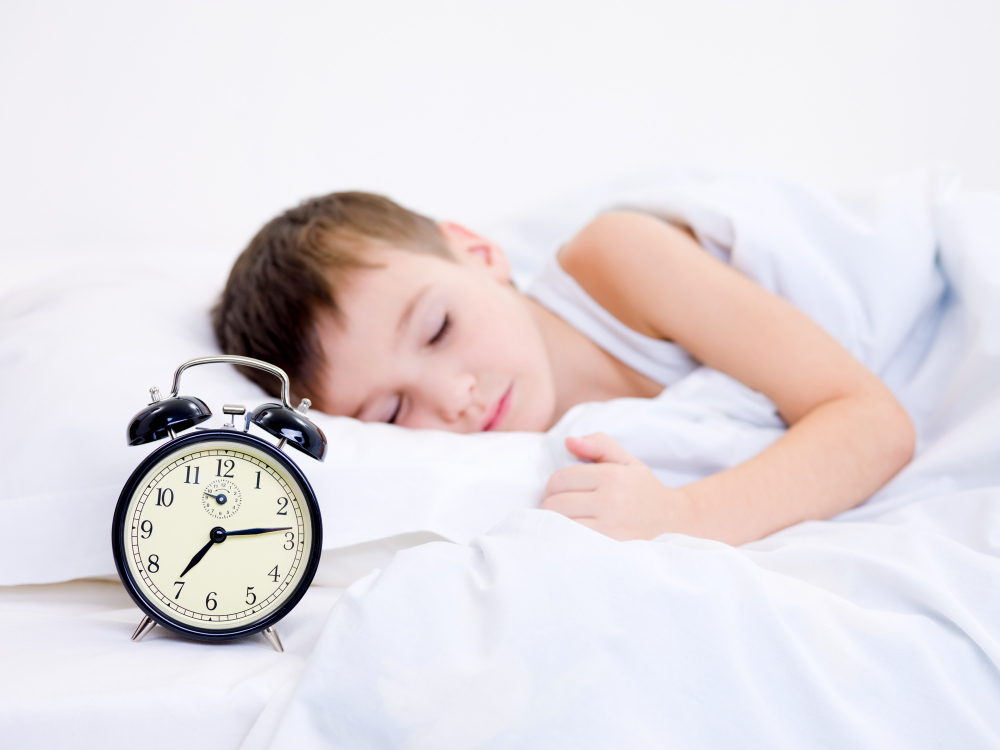Unlocking the Power of Sleep: A Journey into the World of Quality Sleep

The Sleep Cycle Unveiled
Understand the important role of each of the different stages of sleep, from light to deep, for your overall well-being and health.
Table of Contents
ToggleOur bodies go on a complex and exciting journey every night called the sleep cycle. This complex process, which includes four unique steps, is how our conscious and subconscious minds dance together. The first stage is the change from alertness to light sleep, during which the body starts to relax and the eyes move slowly and irregularly. Our body temperature drops and our heart rate lowers as we enter the second stage, getting us ready for a deeper sleep.
Throughout the night, this cyclical journey is repeated multiple times, taking 90 to 110 minutes to finish each time. In order to enjoy all the benefits of deep sleep, one must understand the complex nature of the sleep cycle. It gives people the power to make getting enough sleep a priority, so they can move through each phase without any problems and eventually achieve the best possible health and well-being. We learn important lessons about the basis of a restorative night’s sleep as we work to solve the mysteries of the sleep cycle.
The Science of Dream

Explore the secrets and functions of dreams as you delve into the exciting world of dreams.
Dreams are a fantastic state where our imagination flies, providing mysterious windows into the subconscious mind. The study of dreams, which has its roots in psychology and neurology, aims to unravel the mysteries that appear when our conscious minds give place to sleep.
Dreams are a complex interplay of memories, emotions, and experiences that take place during the rapid eye movement (REM) period of sleep, when brain activity peaks. Numerous brain regions involved in creativity, problem-solving, and emotional regulation are activated during this dynamic process. Dreams enhance the brain’s processing and understanding of everyday experiences, feelings, and unresolved problems, and are frequently used as a type of nighttime treatment.
Researchers investigate the common concepts and signs found in dreams, as well as any possible links between the information found in dreams and reality. While some dreams could be humorous and temporary, others have deep significance and reveal our deeper anxieties, wants, and goals.
The study of dreams not only broadens our comprehension of the inner workings of the mind, but it also emphasizes how crucial restful sleep is to mental health. The science of dreams provides insight into the human psyche and serves as a reminder that our thoughts are constantly active, even while we sleep. This is evident as we continue to explore the complexities of this nighttime story.
Importance of Quality Sleep

Provide information about common sleep disorders, such as sleep apnea and insomnia, and discover possible therapies.
A greater knowledge is required to demystify the impact of sleep disorders, which are a varied variety of illnesses that alter the quality and rhythm of sleep, as they have become more common. One of the most prevalent sleep disorders, insomnia, is characterized by trouble falling or staying asleep, which affects mental abilities and causes weariness during the day.
Another common disease called sleep apnea is a condition that causes breathing to be disrupted while you sleep, which can lead to brief awakenings and excessive daytime sleepiness. The disorder narcolepsy, which is marked by irregular stretches of sleep during the day, blurs the lines between awake and sleep, interfering with everyday tasks.
The discomfort that Restless Legs Syndrome (RLS) causes in the legs compels activity and makes resting difficult. Sleepwalking and night terrors are examples of aberrant actions that occur during sleep that are known as parasomnias. Every illness results from a unique interaction between environmental, lifestyle, and genetic variables.
Understanding the various ways that sleep disorders can present themselves and the serious effects they can have on both physical and mental health are essential to demystifying sleep disorders. Appropriate diagnosis and customized treatment regimens are essential for the successful management of these conditions. Bringing attention to the details of sleep disorders not only makes quick action easier, but it also raises awareness, lessens the stigma associated with them, and encourages a more educated and supportive approach to sleep health.
Sleep Disorders Demystified

Discover the enormous effects that good sleep has on your physical and mental health as well as your ability to think clearly.
A solid night’s sleep is an essential component of overall wellbeing, impacting mental and physical health. It is in the healing embrace of sleep that our bodies go through vital processes that are necessary for optimal health. Cellular regeneration and repair are crucial components that support tissue healing and the upkeep of a strong immune system.
Moreover, learning and memory formation are two more mental functions that heavily depend on getting enough good sleep. The brain works hard to arrange and store knowledge that is learned when awake, which improves mental clarity and problem-solving skills. Good sleep is also essential for emotional resilience because it helps to control stress and emotions.
Sleep is closely related to hormone balance on a physiological basis. Getting enough sleep helps control the hormones that control hunger, metabolism, and stress reaction. This helps people control their weight and feel less stressed. On the other hand, a persistent lack of sleep has been connected to a higher chance of developing diseases like diabetes, obesity, and cardiovascular disorders.
Acknowledging the significance of high-quality sleep emphasizes the necessity of developing sound sleeping practices. Making enough time for restful sleep each night not only promotes physical health but also strengthens the mind to handle life’s obstacles. To put it simply, getting enough good sleep is essential to living a healthy, strong, and fulfilling life.
Sleep Hygiene Tips for a Restful Night

Discover practical strategies for improving sleep hygiene, from creating a calming bedtime routine to optimizing your sleep environment.
Maintaining proper sleep hygiene is essential to getting a good night’s sleep and enhancing general wellbeing. A regular sleep routine that involves going to bed and waking up at the same time each day aids in the regulation of the body’s internal clock. This encourages higher-quality sleep by supporting the body’s normal sleep-wake cycle.
Building a peaceful sleeping space is also essential. This includes getting a cozy mattress and pillows and maintaining the bedroom quiet, dark, and cool. It’s critical to limit screen time before bed because the blue light that electronics emit can disrupt the body’s natural production of the hormone melatonin, which promotes sleep.
The body knows it is time to wind down when you have a peaceful pre-sleep routine. This can involve doing things like curling up with a book, having a warm bath, or using mild relaxation techniques. Avoiding large meals and caffeine close to bedtime also promotes restful sleep.
Frequent exercise improves sleep quality, but doing too much exercise right before bed can have the opposite impact. Maintaining a healthy balance and mixing regular exercise into everyday activities can improve the quality of your sleep. People can ensure that every sleep cycle is a restorative and replenishing experience for their body and mind by adopting these sleep hygiene routines, which can help pave the way for a pleasant night.
The Connection Between Sleep and Productivity

Explore how adequate sleep contributes to increased productivity, enhanced focus, and better decision-making.
The complicated connection between productivity and sleep highlights the major impact that getting enough sleep has on mental health and general performance. A good night’s sleep is crucial for maintaining focus, being creative, and solving problems. People who get enough sleep have better memory consolidation, which makes it easier for them to remember and retrieve knowledge that they need for different kinds of work.
A full night’s sleep also promotes stress management and emotional resilience, which helps to create a productively optimistic frame of mind. In contrast, sleep deprivation has been associated with similar consequences to alcohol intoxication, including less awareness, longer reaction times, and poorer decision-making.
The organizational environment is involved in the association between sleep and productivity in addition to individual factors. Companies that put a high priority on the well-being of their workers—including getting enough sleep—often see improvements in job satisfaction, lower absenteeism, and higher levels of overall productivity.
Understanding the beneficial relationship between productivity and sleep promotes a cultural shift that views sleep as an investment rather than a disposable resource. Acknowledging the importance of sleep for productivity and cognitive function allows people and organizations to create sleep-friendly workplaces, which in turn promotes a workforce that is not just present but also thrives and performs at its peak.
Sleep and Mental Health

Examine the bidirectional relationship between sleep and mental health, understanding how one influences the other.
A key component of general wellbeing is the complex link between sleep and mental health, which has significant effects on cognitive ability and emotional stability. A good night’s sleep is essential for controlling emotions, which affects stress and mood. Sufficient sleep promotes mental resilience by aiding in the consolidation of pleasant memories and in the processing and management of unpleasant emotions.
On the other hand, there is a substantial correlation between sleep disturbances, including insomnia or irregular sleep cycles, and a higher risk of mental health issues. Sleep disorders and mental health conditions such as anxiety and depression frequently interact, leading to a vicious cycle in which one aggravates the other. The intensity and results of treatment for pre-existing mental health illnesses can also be impacted by sleep difficulties.
It is vital to comprehend and tackle the correlation between sleep and mental health in order to enhance psychological well-being. Cognitive-behavioural therapy for insomnia (CBT-I) and other treatments targeted at enhancing the quality of sleep are common forms of therapy. On the other hand, putting mental health first through techniques for reducing stress and promoting emotional well-being has a favourable impact on sleep.
A holistic approach to health must take into account the significant interactions that exist between sleep and mental health. People can help avoid and manage mental health issues by developing appropriate sleep habits, which will ultimately lead to a healthier and balanced mind.
Sleep Across the Lifespan

Examine the different sleep requirements of various age groups and life stages, ranging from newborns to the elderly.
Over the course of a person’s life, their sleep demands and habits change to reflect the complex interactions between age, development, and general health. Sleep habits are erratic during infancy; babies need to sleep for short periods of time often throughout the day and night. Sleep patterns become more regular as kids get older, promoting both mental and physical growth.
Biological changes in circadian rhythms during adolescence frequently lead to a preference for later bedtimes and wake-up times. However, at this phase, social and academic pressures may interfere with good sleep hygiene and compromise general wellbeing. Sleep habits usually stabilize in adulthood, with most people needing 7-9 hours of sleep per night for good health.
Individuals may experience alterations in their sleep patterns as they approach their senior years. An increase in nocturnal awakenings, lighter sleep, and an earlier bedtime are all possible in older persons. Age-related medical disorders, prescription drugs, and lifestyle modifications can all have an impact on how well an older person sleeps.
To promote health and well-being at every stage of life, it is crucial to understand the subtle differences in sleep over the lifespan. Customizing sleep guidelines to meet age-specific requirements can improve sleep quality, improve cognitive performance, and support people’s general health throughout their lives.
Technology and Sleep

Evaluate the impact of technology on sleep and learn how to strike a balance between screen time and a good night’s rest.
The way we work, live, and communicate has all changed dramatically as a result of technology’s intake into modern life, but it also has important implications for sleep. Using electronic devices like computers, tablets, and cell phones frequently results in longer screen times, especially in the hours before bed. The hormone that controls sleep-wake cycles, melatonin, can be suppressed by the blue light these devices emit, upsetting the circadian rhythm and delaying the onset of sleep.
In addition, people may find it difficult to relax before bedtime due to increased stress and worry brought on by technology’s constant connectivity. A never-ending sense of vigilance brought on by social media, emails, and notifications might further impede the process of falling asleep.
In order to lessen the negative effects of technology on sleep, experts advise setting a “digital curfew” that prohibits using screens for at least an hour before bed. This enables the brain to gradually enter a calmer state that is favourable for sleeping. To lessen interference with the circadian rhythm, gadgets can be configured to diminish blue light emission in the night mode.
It’s crucial to strike a balance between the benefits of technology and thoughtful activities that support good sleep hygiene. In the digital age, people can promote a sound sleep by identifying and controlling the impact of technology on their sleep.
Sleep as a Pillar of Well-Being

Wrap up the exploration by emphasizing the essential role sleep plays as a foundation of overall health and well-being.
The importance of sleep is sometimes undervalued in order yet it’s a fundamental component of total wellbeing that affects both mental and physical health. The body needs a restful night’s sleep to support all of its essential processes, from cellular growth and repair to immune system upkeep. Lack of good sleep increases the chance of developing long-term health issues like obesity, diabetes, and cardiovascular disease.
In terms of mental processes, sleep is essential for the best possible brain function. Learning, problem-solving, and memory consolidation are all closely related to the quantity and quality of sleep. Furthermore, since sleep deficiency can increase stress, anxiety, and mood disorders, mental toughness depends on being well-rested.
The impacts of sleep’s recognition as an essential component of wellbeing go beyond the individual to the community. When employers encourage and promote restful sleep patterns, workers frequently report higher levels of job satisfaction, productivity, and general job performance. A societal movement to prioritize and value sleep has led to a greater awareness of the significant effects sleep has on happiness and health.
To put it simply, a holistic approach to wellbeing is inadequate if the critical function that sleep plays is not acknowledged and nurtured. By placing a high priority on and protecting this health pillar, people can strengthen their mental and physical courage, building a foundation for a full and fulfilling life.
This article provides a comprehensive overview of the various aspects of sleep, combining informative content with visual elements to engage and educate readers on the importance of a good night’s rest.
